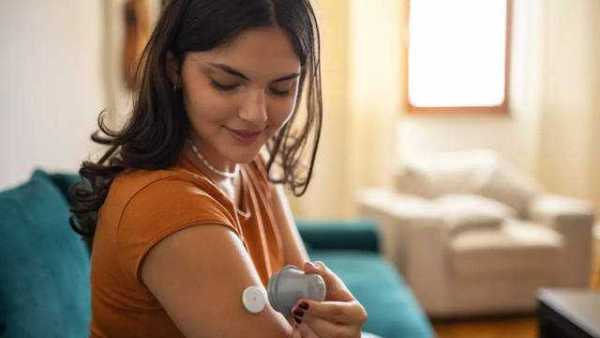
The U.S. Food and Drug Administration (FDA) has approved the sale of continuous glucose monitors (CGMs) without a prescription. A significant milestone for accessibility and health equity in the U.S, the Dexcom Stelo Glucose Biosensor System is an integrated CGM (iCGM) which is intended for anyone 18 and older who does not use insulin, such as individuals with diabetes treating their condition with oral medications, or those without diabetes who want to better understand how diet and exercise may impact blood sugar levels. However, this is not for people with hypoglycemia (low blood sugar) as the system won’t alert the user to this potentially dangerous condition.
“CGMs can be a powerful tool to help monitor blood glucose. Today’s clearance expands access to these devices by allowing individuals to purchase a CGM without the involvement of a healthcare provider. Giving more individuals valuable information about their health, regardless of their access to a doctor or health insurance, is an important step forward in advancing health equity for U.S. patients,” Jeff Shuren, M.D., J.D., director of the FDA’s Center for Devices and Radiological Health said in a
release.
Making CGMs available over the counter has made these wearables accessible to people, especially those who are
diabetic who do not use insulin and nondiabetics who are interested in understanding how diet and exercise affect their blood sugar. By lifting prescription restrictions, the FDA has removed a significant barrier, allowing more Americans to make informed choices about their well-being. Consumers can now purchase devices online or at retail stores without a prescription. The cost of CGMs is also dropping.
These wearable devices, which can be paired with an application installed on a user’s smartphone can track, record, analyse, and display blood sugar levels comtinuosly. According to FDA, users can wear these sensors up to 15 days and can be replaced with a new sensor. These wearable devices can measure blood measurements and trend every 15 minutes. However, it is not advised to take medical decisions based on the device’s output.
As per the data provided to the FDA from a clinical study, the device performed like the other iCGMs. The study however, suggested some adverse events such as local infection, skin irritation and pain or discomfort.
(Pic courtesy: iStock)
 The U.S. Food and Drug Administration (FDA) has approved the sale of continuous glucose monitors (CGMs) without a prescription. A significant milestone for accessibility and health equity in the U.S, the Dexcom Stelo Glucose Biosensor System is an integrated CGM (iCGM) which is intended for anyone 18 and older who does not use insulin, such as individuals with diabetes treating their condition with oral medications, or those without diabetes who want to better understand how diet and exercise may impact blood sugar levels. However, this is not for people with hypoglycemia (low blood sugar) as the system won’t alert the user to this potentially dangerous condition.
The U.S. Food and Drug Administration (FDA) has approved the sale of continuous glucose monitors (CGMs) without a prescription. A significant milestone for accessibility and health equity in the U.S, the Dexcom Stelo Glucose Biosensor System is an integrated CGM (iCGM) which is intended for anyone 18 and older who does not use insulin, such as individuals with diabetes treating their condition with oral medications, or those without diabetes who want to better understand how diet and exercise may impact blood sugar levels. However, this is not for people with hypoglycemia (low blood sugar) as the system won’t alert the user to this potentially dangerous condition.